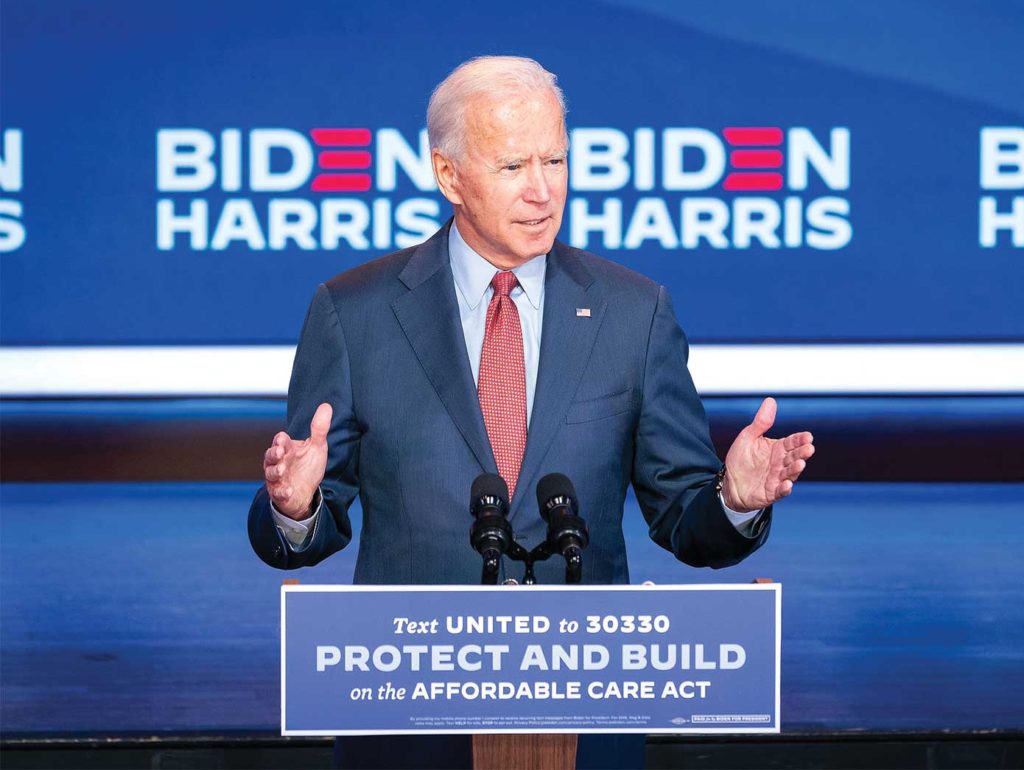Biden aide outlines public education goals of incoming administration
Will increase aid, hold charters accountable

The incoming administration of President-elect Joe Biden will invest billions of dollars in public education to close achievement gaps, modernize school buildings and support schools with high concentrations of low-income students, campaign policy director Stef Feldman told the Education Writers Association (EWA) in an interview last week.
Biden’s policies in many instances represent an about-face from the previous four years under Education Secretary Betsy DeVos, who critics say has during her time in office remained singularly focused on privatization of education, protecting for-profit colleges and expanding charter schools.
Biden’s administration represents a fresh break from the anti-teachers union bent of the Trump administration, said Beth Kontos, president of American Federation of Teachers Massachusetts.
“He has been listening,” she said of Biden. “Teachers union leaders helped him create his policies.”
Among the policies the Biden administration is backing are providing more funding to schools given Title I designation due to their location in low-income communities, and more funding for teacher pay and financial assistance for teachers to pay off their student loans.
COVID relief
Feldman told the EWA reporters that the Biden administration is committed to getting students back into classrooms, but only when the coronavirus outbreak is “under control.”
“That requires listening to science, having nationwide mask mandates, making sure that we have the personal protective equipment we need and using contact tracing to get the virus under control,” she said during an on-the-record webinar with the group.
Feldman also said Biden plans to channel federal funding to schools to help with reopening during the pandemic. The funding, Feldman said, will be provided whether schools open in person or continue with remote learning.
“The big federal role here is providing our local decision-makers with the resources and the information they need to make smart decisions,” she said.
Biden in September committed to using FEMA funds to help school districts purchase personal protective equipment, a commitment that runs counter to the policy of the current administration, Feldman said.
“FEMA had just announced under President Trump’s leadership that they will not help pay for cloth masks and other personal protective equipment for school settings, claiming these basic health and safety costs for schools weren’t emergency assistance,” she told the reporters.
Kontos said federal funding will be important for Massachusetts schools. With restrictions on how state Chapter 70 aid can be spent, districts will need other sources of aid for testing, contact tracing and personal protective equipment. These expenses will have to be covered by supplementary state and federal funding.
“Stopping the pandemic should be a federal goal,” she said.
Charter schools
Biden has pledged to ban federal funding for controversial for-profit charter schools. Such schools have been widely criticized for claiming an inordinate share of federal funding while often providing students substandard instruction.
As for nonprofit charter schools, the administration will require them to be authorized by and accountable to democratically-elected school bodies such as school boards and be held to the same levels of transparency and accountability as district schools, Feldman said.
“That means things like regular public board meetings and meeting all the same civil rights, employment, health, labor, safety and educator requirements that public schools must,” she told reporters. “That’s the fundamental premise of the vice president’s belief that every child, regardless of zip code or parent’s income, race or disability, should have equal access to a high-quality public neighborhood education in their school.”
The Biden administration will require charter schools to demonstrate academic proficiency in order to receive federal funds, according to Feldman.
“Vice President Biden doesn’t think that we need to do away with all charter schools,” she said. “He absolutely wants to support our traditional public schools. But … he feels that the way in which he has designed his policy will allow for charter schools that are delivering results to continue, while also making sure that our funding is focused on our traditional neighborhood public schools.”
Feldman said the incoming Biden administration is committed to raising taxes on corporations and on investment income to help pay for more support for K-12 education and for public higher education.
“I think it was last year that maybe 91 Fortune 500 companies paid zero dollars in federal taxes, which just makes no sense,” she said.
Regarding student debt, Feldman said Biden supports legislation Massachusetts Sen. Elizabeth Warren has proposed to cancel $10,000 in student debt for every borrower.
Feldman would not say whether Biden is receptive to canceling mandated standardized tests during the pandemic.







